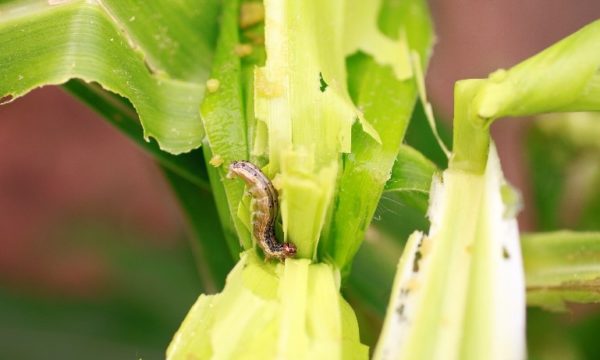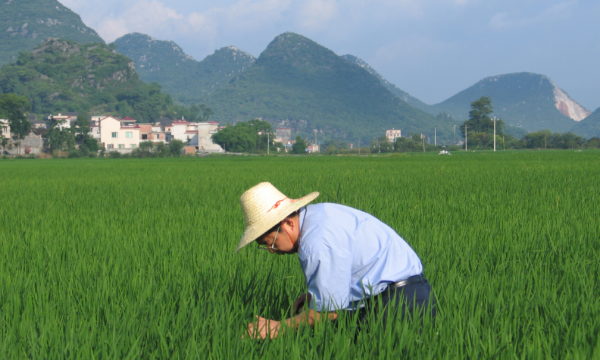
The US is expecting lower than average grain yield due to the drought currently sweeping the country. (Flickr, CIMMYT CCBY-NC-SA 2.0)
The US is currently facing its most severe drought of the past 50 years, raising questions about the implications for global food security. The US is a major producer of grain, including maize and soybean, which have both been adversely affected by the drought, causing a knock-on effect for the global market.
The predicted reduction in yields will drive up the price of maize, which in turn will increase the cost of wheat worldwide as people turn to alternative food supplies. With the reserves of grain already at their lowest, countries will have no choice but to pay the higher price, or else risk suffering a major food shortage.
As is common, it is the poorest people around the world who are most severely affected by these events. These people are often already malnourished, even after spending the majority of their wage on food. Any increase in price therefore has a huge impact on the amount of nourishment they can afford. Net importers of maize, such as Peru and South Korea, are also likely to be hard hit. The US will have to work hard to maintain food availability for its own population as well as continuing to provide international food aid, a programme which is vital to some of the most vulnerable people around the world.
This is, of course, not an isolated problem for US crop yields. Due to changing climates it is expected that other drought-stricken countries will too see a lower harvest in the coming months. Eastern Europe have already predicted a lower than average crop yield this year, which will only serve to deepen the risk of food insecurity.
Exacerbating this situation further is the US policy of using a significant amount of maize grown in the US to generate ethanol in the biofuel industry. Production of ethanol has already reduced by at least 15% this year and many refineries have been forced to close as a result of high maize prices. The use of maize in biofuel is still extensive though as quotas exist to ensure biofuel production from maize remains consistent. This has prompted US farmers to campaign for the suspension of these quotas which cause the diversion of maize away from human nutrition and livestock feeds. The shortfall created will at best lead to a substantial price rises and at worst lead to a global food shortage at a time where 1 billion people already live in chronic hunger. IFPRI, an agricultural think tank, have advised that the severity of this outcome could be dramatically reduced with a change to US biofuel policy.
The full extent of this situation will not be apparent for at least 6 months but when it does, there is concern that it may trigger scenes similar to those witnessed in 2008, when rioters across the globe took to the streets in protest against high food prices. In order to avoid a repeat of those scenes, and to prevent loss of life, there must be a concerted international effort to compensate for yield reductions and ensure people are still able to access enough food for themselves and their families.
Read more about this story at: http://www.guardian.co.uk/environment/2012/jul/23/us-drought-global-food-crisis
Related News & Blogs
Early pest warnings and IPM advice are improving food security for maize farmers in Ghana
Pest warnings are changing the way that smallholders in Ghana farm. Smallholder maize farmers in Ghana have long grappled with the challenges posed by crop pests. Over the past few years, this has included the notorious fall armyworm. This voracious in…
14 November 2023




